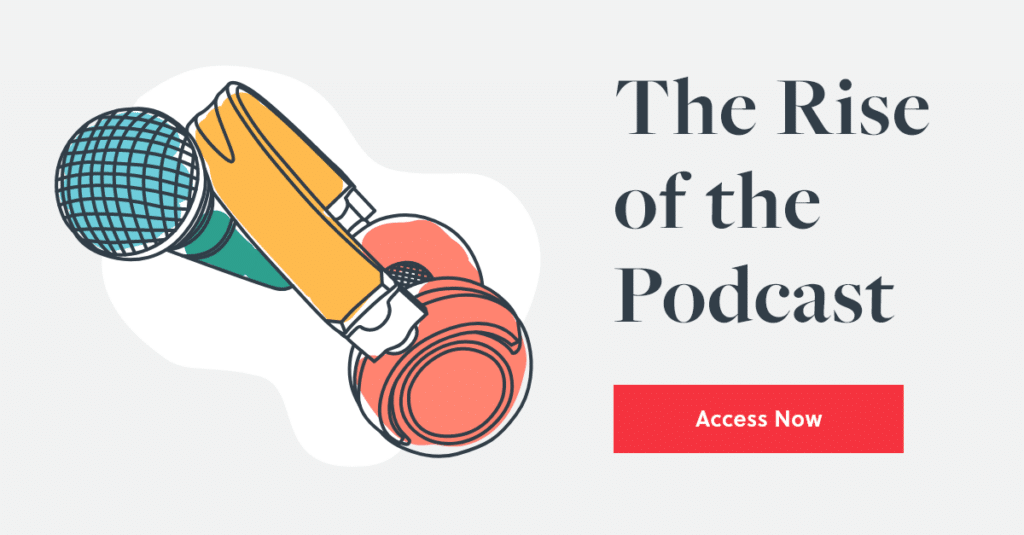In the fast-paced digital age, one form of media has emerged quietly but firmly, capturing the attention of millions worldwide—podcasts. What began as a niche format has now exploded into a global phenomenon, becoming a staple in the world of entertainment, education, and news. But how did podcasts evolve, why are they so relevant today, and what has driven their incredible rise in popularity?
Let’s dive into the fascinating world of podcasts and uncover the secrets behind their success.

The Emergence of Podcasts: From Niche to Mainstream
Humble Beginnings
The term “podcast” originated in 2004, a blend of “iPod” (Apple’s famous portable media player) and “broadcast.” The idea was simple: create downloadable audio episodes that people could listen to at their convenience, rather than following traditional live radio schedules. Early podcasting was largely a DIY effort, with independent creators recording shows on topics they were passionate about, from tech reviews to storytelling.
Although podcasts had a slow start, they were bolstered by Apple’s 2005 decision to add podcasts to iTunes, giving creators access to a global platform. Even with this breakthrough, it would take another decade before podcasts started entering the mainstream conversation.
The Podcast Boom
By the mid-2010s, podcasts began to experience exponential growth. This boom can be attributed to several factors:
- Smartphone Penetration: The widespread adoption of smartphones and better internet access meant that users could listen to podcasts on the go.
- Streaming Platforms: Services like Spotify and Google Podcasts made it easier than ever to discover, download, and listen to podcasts.
- Better Content Production: As more creators realized the potential of podcasting, production quality improved. Studios started investing in the medium, producing high-quality, polished shows.
- Celebrity Involvement: Celebrities began embracing the platform, bringing their massive audiences with them. This increased awareness and respect for podcasting as a legitimate media format.

Why Podcasts Are So Relevant Today
1. On-Demand Consumption
In a world where people crave convenience and flexibility, podcasts are perfectly positioned. You can listen to a podcast anywhere—while commuting, exercising, cooking, or relaxing. Unlike traditional radio or TV shows, podcasts offer on-demand content, allowing listeners to dive into their favorite episodes whenever and wherever they choose.
2. Niche Content for Every Interest
One of the most powerful aspects of podcasting is the sheer variety of content available. Whether you’re into true crime, self-improvement, politics, pop culture, or fantasy fiction, there’s a podcast for you. This vast range of niche topics makes podcasts highly engaging because listeners can find specialized shows that cater to their unique interests—something mainstream media can’t always provide.
3. Intimacy and Connection
Unlike video or text, audio has a personal, intimate quality. Podcasts often feel like a one-on-one conversation between the host and the listener, creating a deeper connection. The nature of podcasting encourages deep dives into topics, fostering in-depth discussions that resonate with listeners. This connection has made podcasts an incredibly powerful medium for storytelling and information sharing.
4. Multi-tasking Appeal
One of the key reasons people love podcasts is that they fit into busy lives. Unlike video, which demands attention, or text, which requires focus, podcasts allow listeners to multitask. Whether you’re driving, working out, or cleaning the house, you can absorb valuable insights or entertainment while ticking off tasks.
5. Low Entry Barrier for Creators
For content creators, podcasting offers a relatively low-cost entry point compared to video production or publishing. All you need is a microphone and recording software to get started. This accessibility has democratized content creation, allowing a diverse range of voices and perspectives to emerge in the podcasting world.
The Publicity and Global Phenomenon
Celebrity-Driven Popularity
Celebrities and influencers have played a significant role in propelling podcasting into the mainstream. Personalities like Joe Rogan, whose podcast “The Joe Rogan Experience” became a household name, have shown how the medium can attract millions of listeners. Other famous figures, such as Michelle Obama, Dax Shepard, and Oprah Winfrey, have further expanded the audience with their own podcast series.
The Power of Storytelling
One of the breakthrough moments in the podcasting world came in 2014 with the release of “Serial”, a true-crime investigative series that captivated millions and became a cultural phenomenon. The gripping, episodic storytelling kept listeners hooked, sparking widespread discussion and proving that podcasts could rival TV shows in terms of popularity and engagement.
“Serial” opened the floodgates for a new wave of storytelling podcasts, with listeners drawn to serialized content that built suspense over multiple episodes. As a result, podcast creators across the world started focusing on high-quality production values, better editing, and compelling narratives.

The Role of Social Media
Social media has been a game changer in spreading the word about podcasts. When a podcast resonates with listeners, it’s often shared widely on platforms like Twitter, Instagram, and TikTok. This organic publicity has helped niche podcasts go viral, often finding listeners they wouldn’t have reached otherwise. Social media is also a valuable tool for creators to connect with their audience, building strong communities around podcast shows.
Podcast Networks and Platforms
The rapid rise in podcast popularity has also led to the creation of podcast networks and platforms. Companies like Spotify, iHeartRadio, and Apple have started investing in exclusive podcast deals, producing original shows, and providing better monetization opportunities for podcasters. This corporate interest has given podcasting even more visibility and reach, further cementing its place in mainstream media.
Awards and Recognition
Podcasts have earned their place as a serious content form, with prestigious award shows like the Webby Awards and the Podcast Academy’s Ambie Awards recognizing the best of the best. Recognition from the media industry has added further credibility and fueled interest in the podcasting space, especially for creators looking to turn their passion into a full-time career.
The Future of Podcasts
With more people consuming podcasts than ever before, the future looks bright. As technology continues to improve and more creators enter the scene, we can expect:
- Enhanced Interactivity: Imagine podcasts with interactive elements, allowing listeners to make choices or contribute in real-time.
- Immersive Audio: 3D audio and other immersive sound technologies could make podcasts even more engaging.
- Diverse Content: As podcasting continues to grow, expect to see even more unique and diverse voices in the space.
The rise of podcasts is a testament to the power of storytelling and the demand for convenient, flexible content. Whether you’re a listener or a creator, podcasts offer a rich and rewarding experience, providing both entertainment and education at the tap of a button.
Final Thoughts
From humble beginnings to a global media phenomenon, podcasts have revolutionized the way we consume content. They’re relevant because they fit seamlessly into our busy lives, offer specialized content for every interest, and create meaningful connections between creators and listeners. With no signs of slowing down, podcasts are poised to remain a dominant force in the world of digital media for years to come.
So, whether you’re looking to laugh, learn, or escape, there’s never been a better time to tune in to the world of podcasts!




